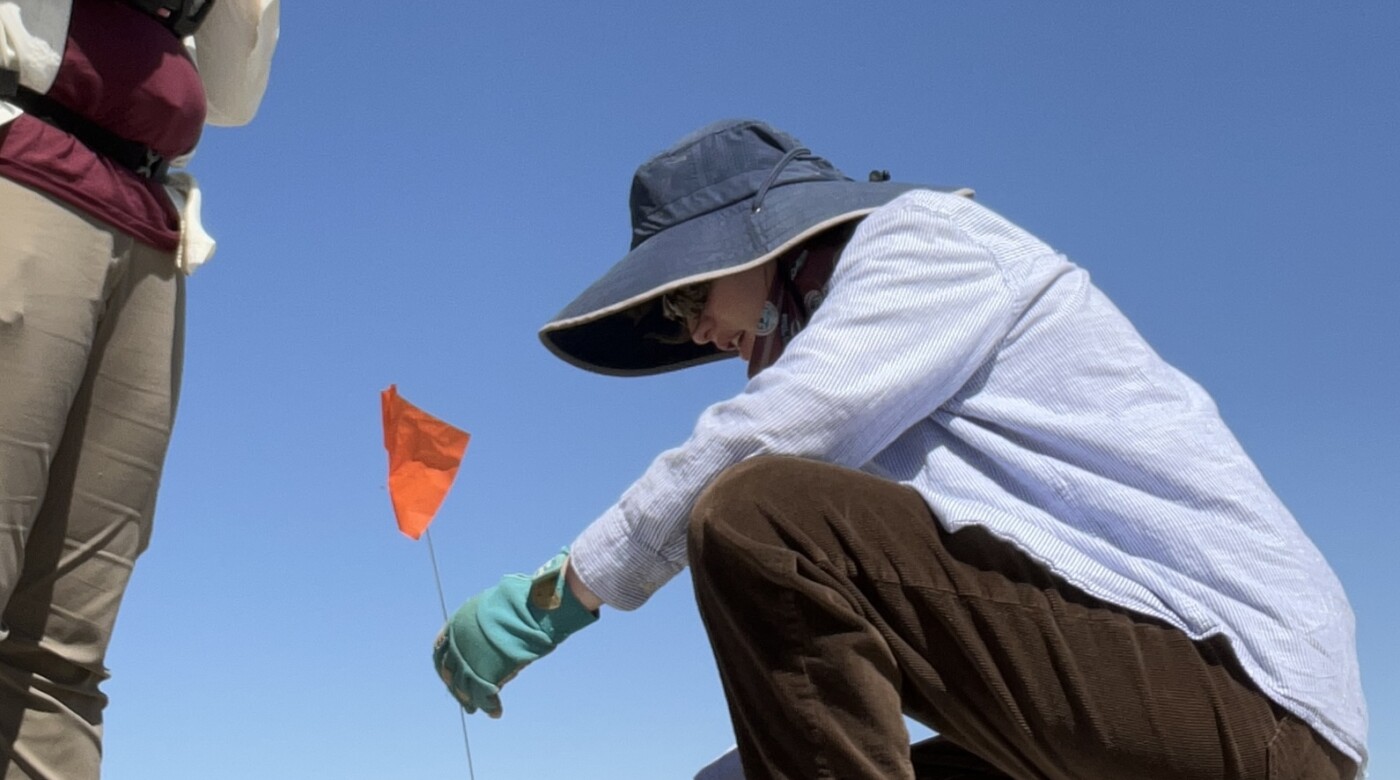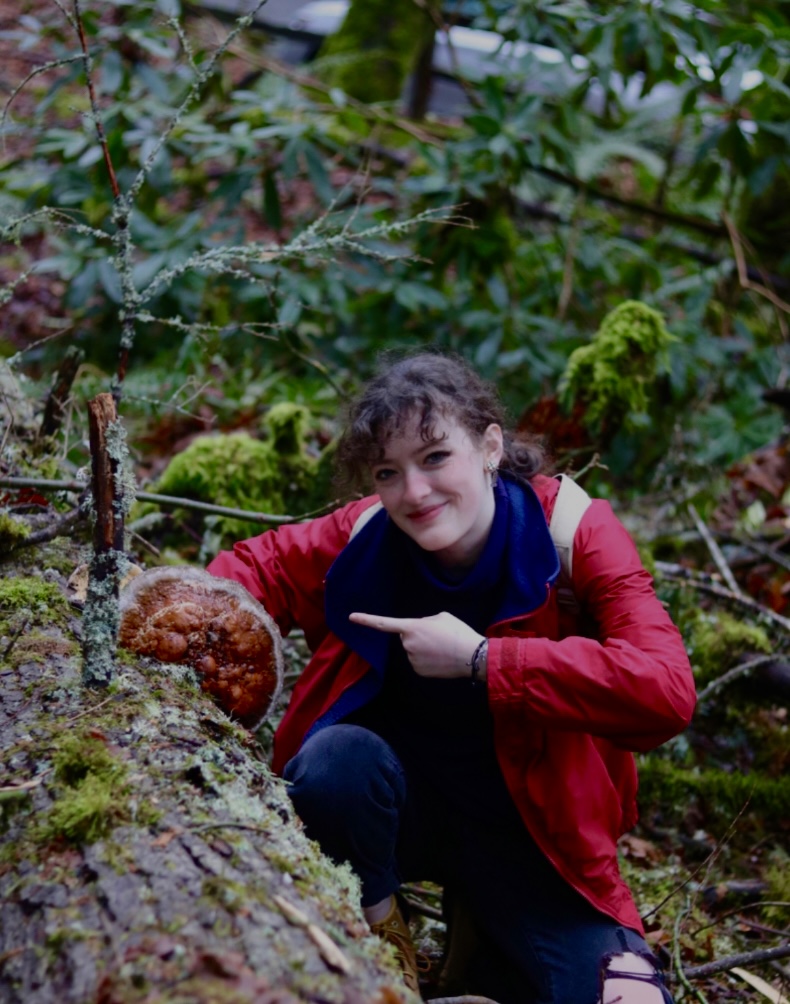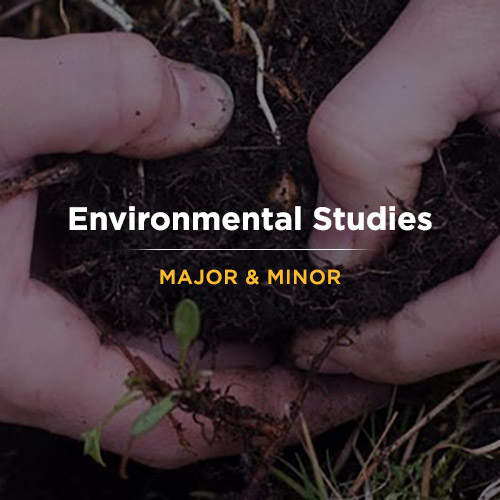Summer Internships: Environmental Studies
Self-proclaimed "tree hugger" soars in internship with Bird Refuge

Image: Fiona Ashton-Knochel ’24 spending the summer at Bear River Migratory Bird Refuge.
Fiona Ashton-Knochel ’24 is spending her summer on a bird refuge in Brigham City, Utah. The Environmental Studies major sat down with us to discuss her exciting internship and to offer suggestions for anyone looking to land their own internship working in conservation.
Why did you want to pursue an environmental studies degree?
I’m a tree hugger, so naturally this major caught my eye. Genuinely, though, I chose Environmental Studies because it teaches me to use multiple fields of study to approach environmental issues. That’s a pretty useful skill for anyone to have. Pursuing this degree also allows a thorough focus on multiple interests, and it’s rewarding to juggle my love for the sciences and humanities at the same time.
Why did you choose to study at PLU?
I study at this school because I feel at home on this campus and in the Pacific Northwest. Specifically, though, there are professors who encourage me to continue learning here—The first person who comes to mind is Dr. Adela Ramos, chair of the Environmental Studies department. She is an inspiration and PLU is so lucky to have her.
You are interning at the Bear River Migratory Bird Refuge in Utah—how did you secure that internship?
I wanted to be in my home state (Utah) for the summer, so I searched for opportunities to work out there–I found this internship online! I looked specifically for paid summer internships involving environmental science and conservation.
What was the application process like for this internship?
Besides a thorough brushing-up on my knowledge of ecology and land management, the baseline application process involved an interview with people from the American Conservation Experience company and U.S. Fish and Wildlife. Then, a resume and cover letter submission was required like any regular job, along with a housing contract which allows me to live on the refuge.
If you end up applying for an American Conservation Experience (ACE) job or a job with U.S. fish and wildlife, it’s helpful to make a list of any specific skills you’ve learned in the lab or in outdoor fieldwork. Chances are, your employers will see this in your application and give you accommodations depending on the extent to which they want your skillset in the workforce.
Tell me a little about the internship. What are you doing, what are you learning?
As a Bio Tech at this refuge, I work under the supervision of the head biologist to catalyze hydrologic restoration for bird habitats, test the water (mainly salinity, conductivity, and temperature at various sites,) establish baseline vegetation data sets, network with land agency professionals, set up bird nest-monitoring technology, eradicate invasive species, build an outdoor education center, and work on wetland delineation.
What do you enjoy about your internship?
I love this amalgam of scientific research and manual labor. There are plenty of chances to read and evaluate data, but it’s also truly satisfying to learn by physically living here. It may sound sentimentalized to say this; there’s something irreplaceable about waking up in nature, working outside, and listening to the outdoors. You’d be surprised how much information you can pick up from this 74,000-acre ecosystem by default through spending time outside. Next, I’m grateful for the incredible people with decades of experience who have patiently taught me the essentials of working here. Last but not least, there’s this fantastic QuietKat brand electric bike I get to use during fieldwork, and get this—when I’m bird-watching it doesn’t scare off the birds, and it has 40 miles on a full battery charge. You don’t know how good life can be until you get your hands on one of those.
How do you see this experience benefiting you after graduation?
Of course, this internship was a great resume booster, but it also taught me so much about land management. I expect that this newfound experience of working with landowners will prove useful, especially if a specialty in water conservation or ecology is in my future.
What are your plans when you graduate?
I’d like to pursue a master’s degree in environmental science eventually, but plans do sometimes change. When graduation comes I may be inclined to work for a year or two before going back to school. Thanks to this internship, I’m flirting with the idea of working as a U.S. Fish and Wildlife member during that time.






Social Media